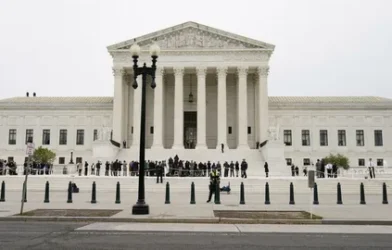Introduction
The name Jeffrey Epstein has become synonymous with one of the most disturbing criminal cases in recent memory. The Epstein files, a broad term used to describe the documents released from investigations and lawsuits involving him, have drawn intense attention around the world. These records shed light on the extent of Epstein’s network, his crimes, and the people who may have been connected to him. In this blog, we will explore what the Epstein files are, what they contain, and why they continue to raise serious questions.
What Are the Epstein Files?
The Epstein files are a collection of official documents related to Epstein’s criminal activity, his connections, and the lawsuits brought against him and his associates. These documents include court records, unsealed depositions, interview transcripts, flight logs, emails, and personal notes. Many of the files became public as part of a civil case involving Virginia Giuffre, a woman who accused Epstein and others of sex trafficking and abuse.
Over time, judges ordered certain parts of these files to be unsealed to the public. The goal was to bring transparency to a case that had been shrouded in secrecy for years. These files offer a deeper look into how Epstein operated and who may have helped or enabled him.
Contents of the Files
The Epstein files are not just one document but a collection of many records gathered over several years. Some of the main contents include:
-
Flight logs: These list the names of people who traveled on Epstein’s private jets. The aircraft, often referred to in media reports, flew to his private island and other properties around the world.
-
Contact lists: Epstein kept detailed records of people he knew or worked with. These lists include names from many industries, including politics, science, finance, and entertainment.
-
Depositions and testimonies: Victims and witnesses gave statements under oath, describing their experiences and what they saw. These testimonies have helped investigators build a clearer picture of Epstein’s actions and relationships.
-
Email and phone records: These communications suggest how Epstein managed his network and kept in touch with both associates and victims.
High-Profile Names and Public Reaction
Many people were shocked to see familiar names appear in the Epstein files. These included former politicians, celebrities, and wealthy business leaders. It’s important to note that being named in the files does not automatically mean someone committed a crime. In many cases, individuals were simply listed as contacts, guests, or passengers on flights.
Still, the public reaction was strong. People wanted to know who knew about Epstein’s crimes and whether others were involved. For many, the release of the files confirmed long-standing concerns about power, privilege, and accountability.
Legal Impact and Ongoing Investigations
The Epstein files have played a key role in legal proceedings, both past and present. They have supported lawsuits filed by victims and contributed to investigations into Epstein’s associates. Ghislaine Maxwell, a close companion and business partner of Epstein, was convicted in 2021 for her role in helping him traffic and abuse underage girls. Some of the evidence used in her case came directly from these files.
Despite Epstein’s death in 2019, the legal battles are far from over. Several victims continue to seek justice, and questions remain about how Epstein was able to build and protect such a powerful network for so long.
Controversies and Criticism
The release of the Epstein files has not been without criticism. Some documents remain sealed or heavily redacted, frustrating those who believe the public deserves full transparency. There are also concerns about selective disclosure — that certain names or pieces of evidence are being hidden to protect influential figures.
In addition, the way some information was released — including sharing files with select individuals before public release — has drawn criticism for creating confusion and fueling conspiracy theories.
Why the Epstein Files Matter
The Epstein files matter because they reveal how someone with wealth and connections was able to commit terrible crimes over a long period without being stopped. They also expose gaps in the justice system, including how some people were protected while victims were ignored.
These documents remind us of the importance of accountability, especially when it involves powerful people. They have also led to a broader conversation about how institutions respond to abuse and the role of the media in uncovering the truth.













Comments are closed